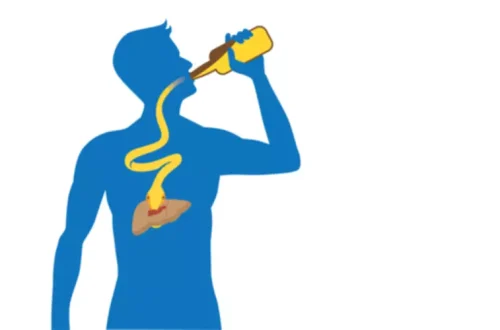
Research the kinds of treatment that are available and discuss these options with your friend or family member. Make a note about how you feel physically and mentally on these days—recognizing struggling with alcohol addiction the benefits may help you to cut down for good. “People with that experience already understand the issues. It’s more easy to relate,“ added Burnham, who volunteers at the center.
- Strengthening positive relationships with the supportive people in your life can play an important part in your recovery and continued abstinence.
- However, family members and friends often have deep emotional ties that prevent them from having the objective viewpoint necessary for treatment.
- Within just a month of not drinking, your body can begin to reap the benefits.
- If your drinking is causing problems in your life, then you have a drinking problem.
- It’s common to have a difficult time when making big changes, but good self-care practices can help you manage overwhelming feelings and take care of your mind and body.
Figure out how much you actually drink
By doing this, you are not only empowering yourself to make well-informed decisions, but you are also ready and equipped with information when your partner decides they are ready to seek help. It’s also essential to develop stress management strategies. This is an important step in helping you help your loved one. These strategies will help you cope with the stressors you will likely encounter when helping a friend or family member seek and receive help with an addiction. Alcoholics Anonymous (AA), with 2.1 million members worldwide, has assisted people to regain control over alcohol use since 1935. There are also medications effective in treating AUD, such as naltrexone and other drugs.

Why Overcoming Addiction Is So Difficult
- What must follow is the process of behavior change, through which the brain gradually rewires and renews itself.
- Remember that changing long-standing patterns is hard, takes time, and requires repeated efforts.
- American Addiction Centers (AAC) is committed to delivering original, truthful, accurate, unbiased, and medically current information.
- You can also benefit from the shared experiences of the group members and learn what others have done to stay sober.
Finding a therapist can also be a great starting point if you’re uncomfortable opening up to your healthcare professional. • Developing a detailed relapse prevention plan and keeping it in a convenient place for quick access when cravings hit, which helps guard against relapse in the future. A good relapse prevention plan specifies a person’s triggers for drug use, lists several coping skills to deploy, and lists people to call on for immediate support, along with their contact information. People can learn to resist or outsmart the cravings until they become manageable. There are strategies of distraction and action people can learn to keep them from interrupting recovery.
Professional Help
Women for Sobriety – Organization dedicated to helping women overcome addictions. Alcoholics Anonymous (AA) – Learn more about AA’s 12 steps and find a support meeting in your area. It is better to set a goal that you will actually achieve than to plan to quit „cold turkey“ and https://ecosoberhouse.com/ end up relapsing, which can be more dangerous than simply continuing without any changes. Once you make that decision to change, however, you can begin the process of preparing to take action. „I have all the good things in life that everybody talks about,“ he said.

- An inpatient program can last anywhere from 30 days to a year.
- If you think you or someone you care about has alcohol use disorder, here are some next steps you can take.
- A solid support system is crucial to long-term recovery.
- While it’s up to the person to willingly start their sobriety journey, you can also help.
- If your loved one claims that they don’t know how you can help them, they may still be in denial about their alcoholism.
- It gets in the way of recovery, self-acceptance, and accessing help when needed.
Plan for triggers and cravings

Reach out for support






